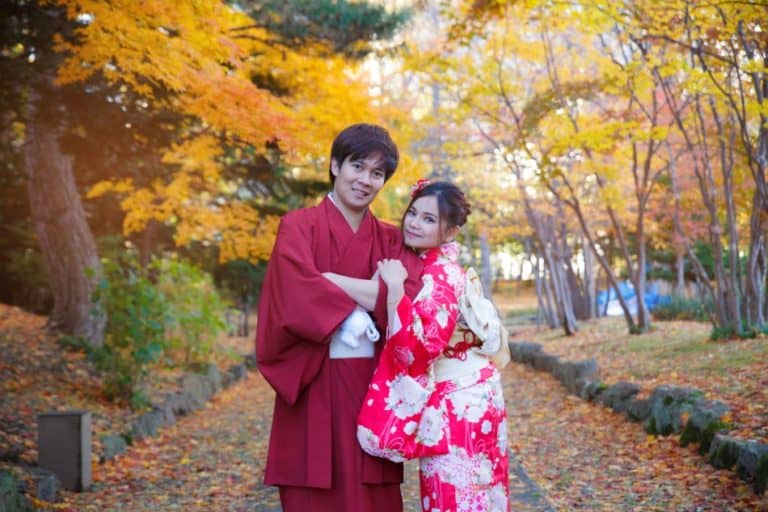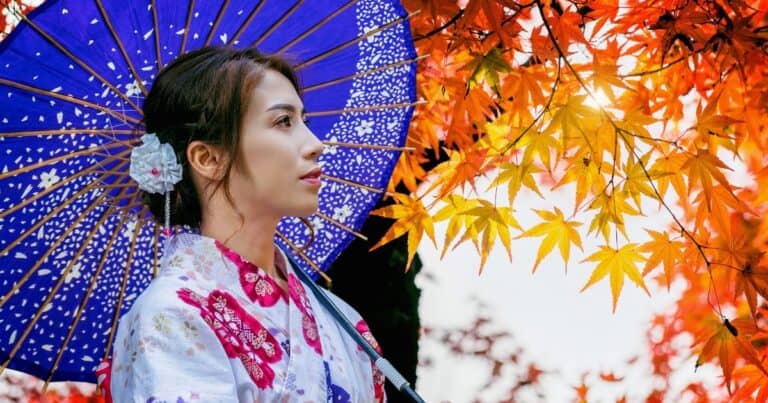How To Make Japanese Friends: Ultimate Guide
Making Japanese friends is like stepping into a beautiful garden of vibrant flowers. There’s so much to explore, but the key to making genuine connections lies in understanding the culture and customs of Japan.
As an expert on Japanese culture, I will provide helpful tips for forming lasting friendships with people from this unique nation.
Making friends in any country can be tricky; however, following some simple advice makes it easier to build meaningful relationships while avoiding cultural faux pas.
To make true Japanese friends, it’s essential to understand their expectations and preferences regarding communication and socializing.
With patience and respect, anyone can form deep bonds with those of the Land of the Rising Sun.
The Basics Of Japanese Culture And Customs

When learning how to make Japanese friends, it’s essential to have a solid grasp of the culture and customs.
Learning body language is key as it’s often used in communication instead of words.
Understanding honorifics is also very important; they are titles that demonstrate respect towards people with higher statuses and are essential for navigating conversations.
Mastering small talk can be tricky initially, but adapting common phrases like ‘ohayou gozaimasu’ (good morning) or ‘Arigatou gozaimasu’ (thank you) will help break the ice!
Furthermore, understanding how Japanese communicate verbally is crucial – sentences tend to be more polite and indirect than direct English statements.
This means being aware of cultural politeness norms, such as not saying ‘no’ directly when disagreeing with someone.
With these tips, one can build meaningful relationships with new Japanese friends!
Mastering The Japanese Language
“The journey of a thousand miles begins with one step.”
This proverb rings true for those who aspire to make Japanese friends, as mastering the language is the first step.
Numerous learning resources and technological tools, such as online courses and apps, can help you gain language proficiency.
By taking advantage of these options, anyone passionate about making progress in their studies can reach fluency much faster than traditional methods.
In tandem with language studies, it’s important to develop cultural understanding by reading books on Japan or watching documentaries about its culture.
Being socially aware of etiquette norms, such as not speaking loudly in public, will be beneficial when interacting with locals.
Utilizing Social Media For Communication

Having a good grasp of the Japanese language will certainly help you to make Japanese friends, but there are other effective ways as well.
Utilizing social media is one such option that can connect you with people from Japan who share similar interests and values.
Joining online forums, playing online games, using language apps like HelloTalk, engaging in video chats on networking sites, etc., all offer excellent opportunities to meet new people.
Through these platforms, you can find people within your age group or with whom you share common hobbies and activities; this helps narrow your search considerably when looking for potential friends.
Some websites even provide advice geared explicitly towards making foreign friends in Japan.
Finding Local Clubs And Organizations
Making Japanese friends can be a great way to learn more about the culture and language.
Connecting with people online is one of the easiest ways to make new Japanese friends, though it’s important to remember that building strong friendships often requires face-to-face interaction.
Attending local meetups or joining clubs related to Japan are other good options for meeting people in person.
Traveling abroad to Japan is also an excellent opportunity for making friends there, taking language lessons, or participating in cultural events that may have gatherings where you can socialize and network.
Conversation with locals is a great way to get acquainted with their customs and lifestyle while improving at speaking their language too! All these activities will help build relationships that could last a lifetime.
Taking Part In Language Exchange Programs
There are a number of ways that an ex-pat in Japan can successfully build friendships and grow their social relationships with locals.
One great way is by taking part in language exchange programs.
Language exchanges provide invaluable opportunities for interested individuals to learn about each other’s cultures, practice speaking different languages, and develop lasting friendships.
A traditional language exchange involves two people: one native speaker of English who wants to improve his/her Japanese skills and one native speaker of Japanese who wants to improve his/her English ability.
There are now many online resources available that offer free language exchange services as well:
- These websites enable users from anywhere around the world to connect with one another through text messages or video chat
- They give participants a chance to get past any cultural differences they may encounter when meeting face-to-face
- By engaging in conversation practice with someone whose mother tongue is different than yours, it allows you to become more aware of potential language barriers in communication
- Through these conversations, you can better understand how specific phrases and expressions should be used properly.
- You may even form deep connections that could develop friendships over time!
The possibilities for making new acquaintances while learning something valuable at the same time have never been greater, thanks to the internet age we live in today.
Language exchanges present an excellent platform where anyone looking for meaningful interaction with like-minded individuals can do so comfortably wherever they happen.
So why wait? Get out there and start meeting some interesting people!
Exploring Cultural Events And Festivals

Visiting shrines, attending classes, and exploring Japan’s unique cuisine are good places to start.
Learning some of the languages can be a fun and effective way to break the ice with new friends as well, so studying some essential words and traditions of Japan could prove invaluable in helping you communicate with locals.
Getting out into nature also offers many opportunities for making connections – from hiking trails to local parks, there are plenty of ways to meet people who share your interests.
Exploring different parts of the city or taking day trips outside of Tokyo will allow you to experience how other parts of Japan live their lives, which may lead you towards even more meaningful interactions with those around you.
Establishing Genuine Relationships
A stunning 97% of Japanese people are active on a social media platform, making it easy to connect with others virtually – an essential step in establishing genuine relationships and friendships!
However, there’s more to forming meaningful connections than just “liking” each other online. Here are four critical steps for developing actual bonds:
- Encourage Conversation: Get to know your potential friend by asking about their interests and hobbies or what they like best about living in Japan.
- Share Experiences: If you share similar interests, such as sports or music, join a club or attend a local event.
- Engage in Activities: Take time out from talking and lighten the mood with karaoke or board games; this will help build trust and give you something fun to do together.
- Embrace Differences: Don’t be afraid to explore different lifestyles and cultural practices – learning from each other can be incredibly rewarding!
Respect For Personal Space And Boundaries
Intercultural communication can be challenging due to language barriers and social expectations that vary from culture to culture.
In Japan, one must consider particular cultural taboos when interacting with someone from the country so as not to cause offense or discomfort.
To develop a meaningful friendship with someone from Japan, it is critical to understand their perspective on personal boundaries.
The following table outlines some key differences between American and Japanese perspectives:
| American Perspective | Japanese Perspective |
|---|---|
| Physical contact is generally accepted among friends | Physical contact should usually be avoided unless absolutely necessary |
| Speak freely in conversation about any topic | Specific topics such as sex, politics, and religion may be taboo |
| Personal space is relative but still respected | Respect for personal space is extremely important |
| Eye contact during conversations implies confidence & trustworthiness | Too much eye contact may make the other person uncomfortable |
| A loud voice is seen as an indication of confidence& enthusiasm | Soft-spokenness shows politeness & humility |
Overcoming Challenges In Making Friends

Many people find it difficult to make friends in a new country, with the added challenge of language and cultural barriers.
However, contrary to popular belief, making Japanese friends is not impossible. In fact, according to recent statistics, over 1 million foreigners live in Japan – so you certainly won’t be alone!
When faced with the challenges of forming friendships abroad, breaking language barriers, overcoming shyness, building confidence, and learning customs can all seem daunting.
But by following these simple steps, you will soon be well on your way to forming meaningful connections:
- Breaking Language Barriers: A significant first step towards communicating effectively is learning basic Japanese phrases such as ‘Hello,’ ‘Thank You,’ and ‘My name is…’. It’s also important to remember that speaking slowly goes a long way when conversing in another language.
- Overcoming Shyness: One way to help overcome initial anxiety or shyness when meeting new people is to focus on finding common interests that both parties share. This could range from music and books to sports and hobbies – anything which may help spark conversation and build rapport between two individuals.
- Building Confidence: Learning about local customs can go a long way toward feeling confident during social interactions. Understanding how the locals act towards one another can provide valuable insight into their culture, which will undoubtedly leave a positive impression on those around you.
Understanding Cultural Sensitivities
Whether you are simply visiting Japan or looking to make lasting connections, being aware of Japanese culture’s social boundaries and communication etiquette will go a long way toward helping you build meaningful relationships.
Adapting to customs such as greeting conventions (bowing vs. shaking hands), language nuances (using honorifics), and learning about key elements of the collective mindset is essential for those looking to become part of the community.
Here are a few things to consider when trying to make Japanese friends:
- Respect privacy – don’t ask overly personal questions unless they open up first
- Follow protocol – learn how to use honorifics like ‘san’ or ‘sama properly’
- Be patient – understand that conversations may progress slowly due to cultural differences.
Enhancing Cultural Appreciation
According to recent data from Japan’s Ministry of Foreign Affairs, there has been an increase in international exchange programs and cultural activities between foreign nationals and native Japanese citizens over the past few years.
To ensure success in making new friends, embracing differences and seeing similarities among other cultures is essential.
By developing a greater cultural awareness and intercultural understanding, individuals can become more open-minded about different ways of living.
This could involve exploring traditional customs, sampling local dishes, or participating in social events that facilitate cultural exchange.
When done correctly, these interactions allow people to gain valuable insights into how others think and act which can create lasting connections with newfound friends.
It’s up to each individual to decide how to build interpersonal relations, but taking initial steps toward getting to know someone better can go a long way.






